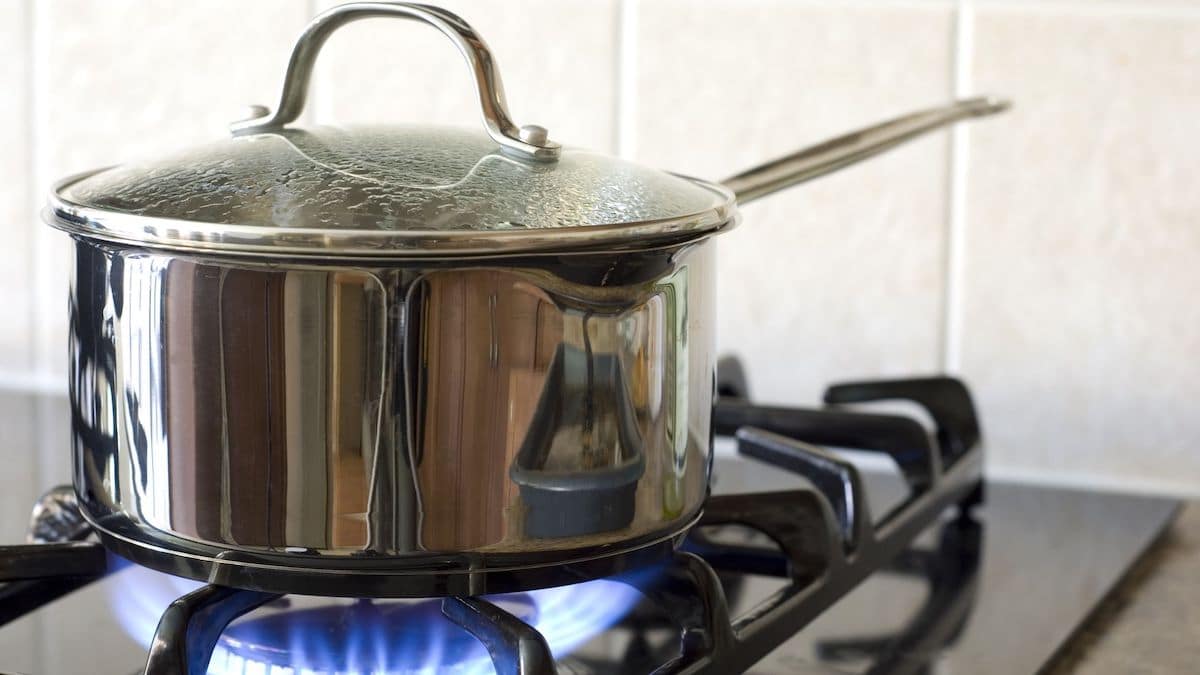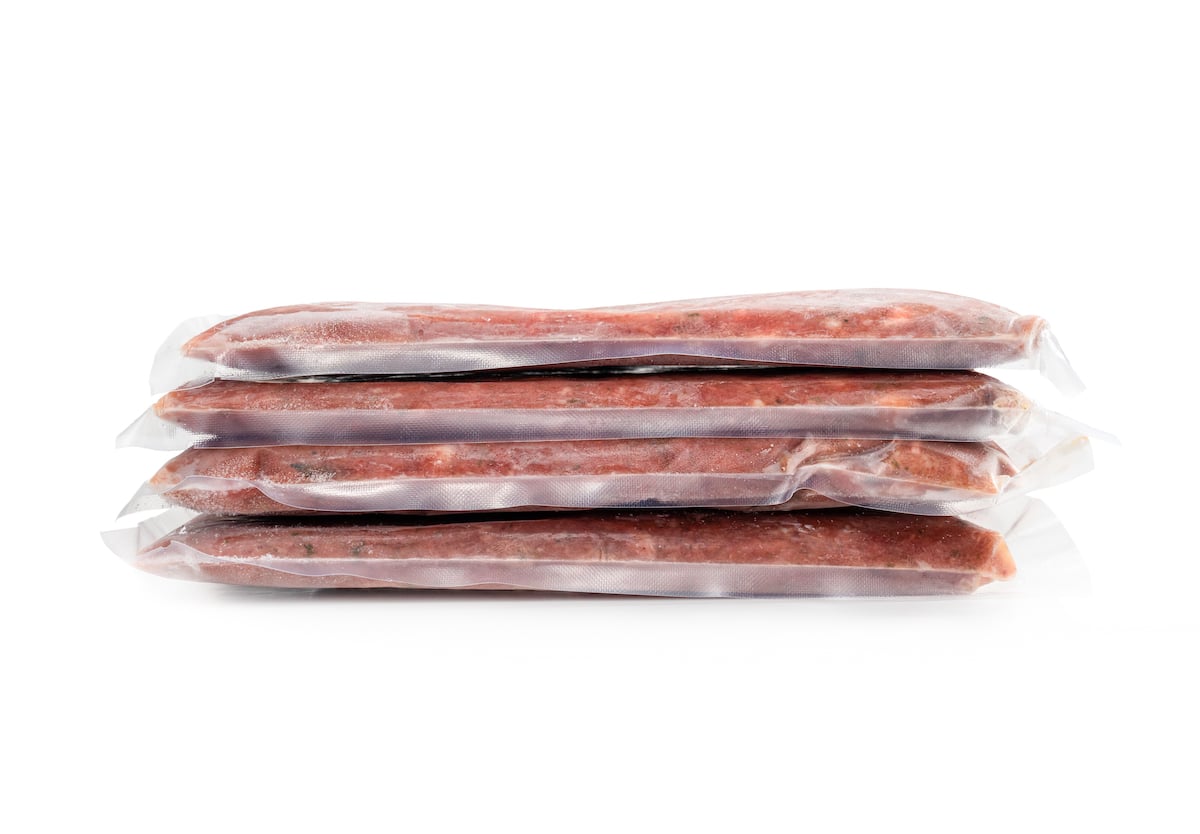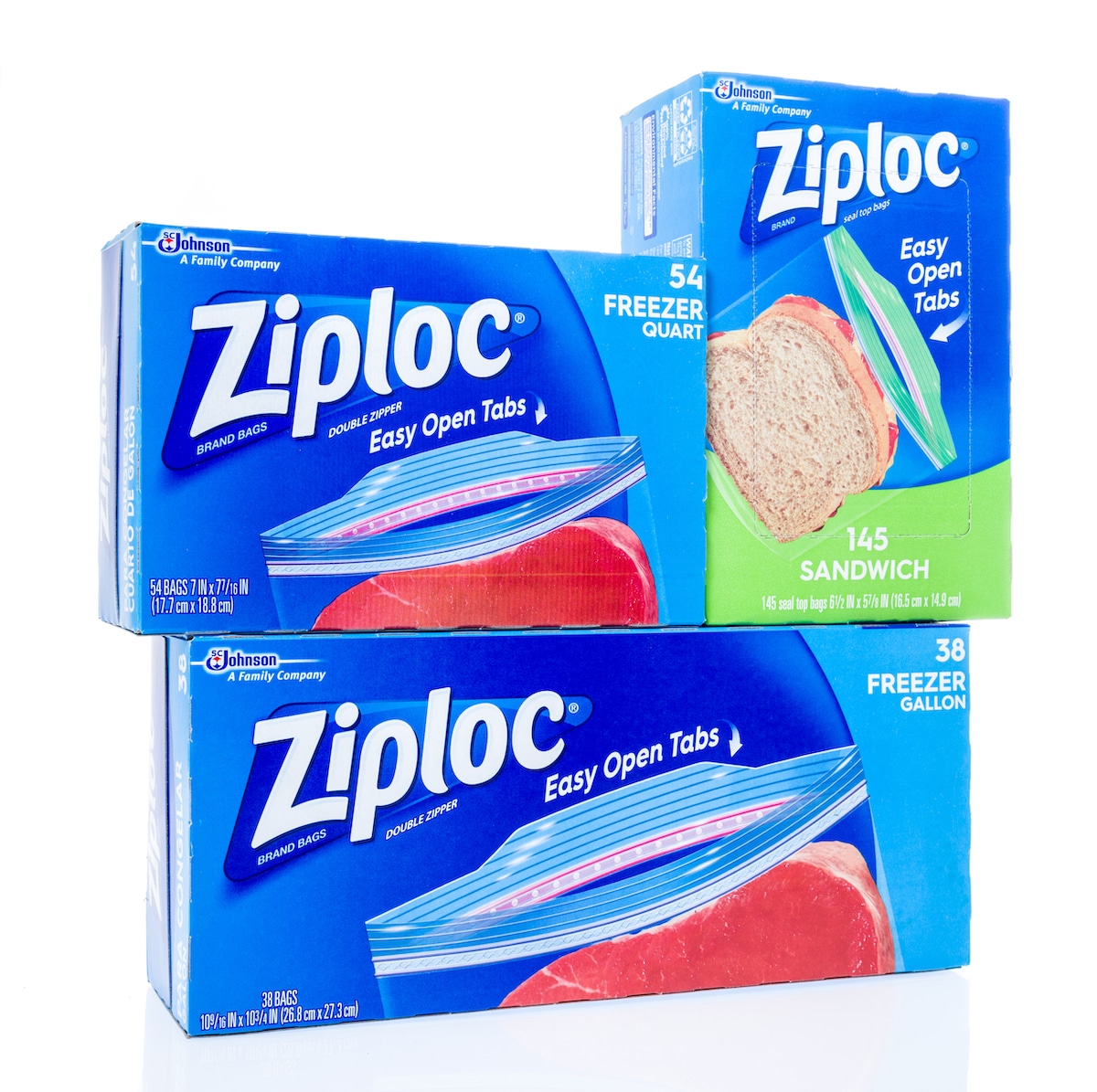Can You Freeze Homemade Spaghetti Sauce? Here’s How to Do It Right
As a very busy mom with very little time on my hands, the act of batch-cooking saves me time. I love this craft even more for meals I know the whole family will love, and spaghetti bolognaise is a staple meal in my home.
Spaghetti doesn’t really take long to cook, but the homemade spaghetti sauce that my family love does. This is where cooking in large quantities comes in handy.
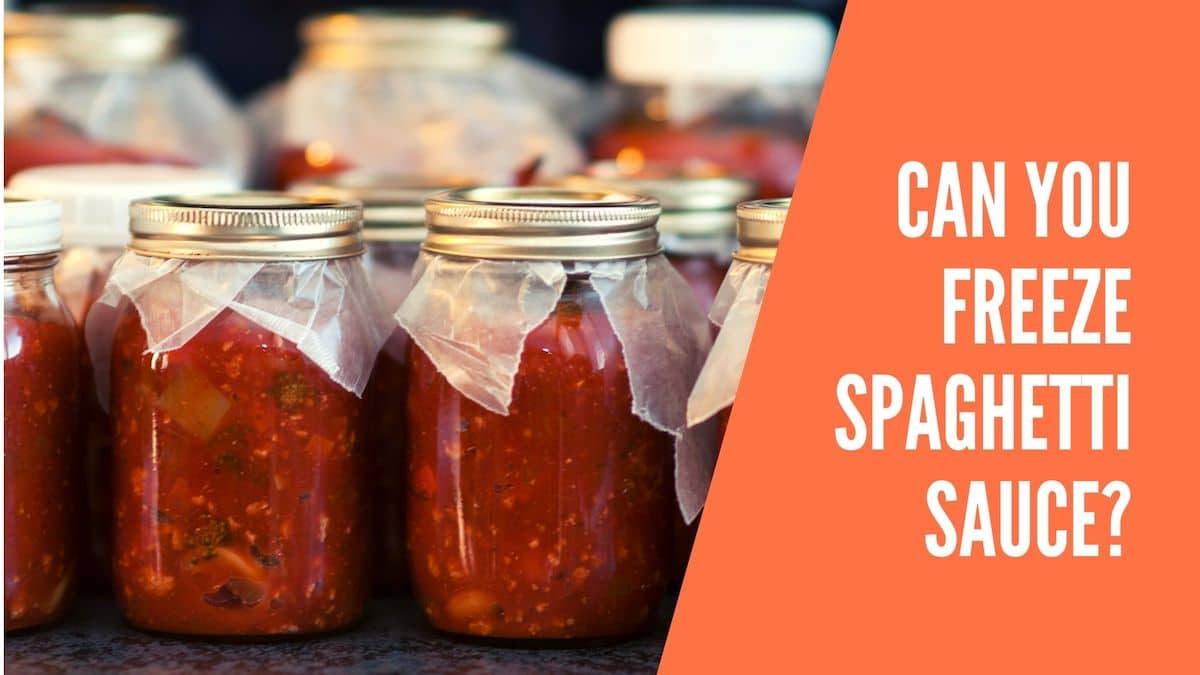
Can You Freeze Homemade Spaghetti Sauce?
But can you freeze spaghetti sauce? Yes, you can freeze homemade spaghetti sauce and what’s more, I think it often tastes better the second time around! After a hectic day, the joy of simply thawing a wholesome spaghetti sauce and adding it to some cooked angel hair pasta, in less than 6 minutes, is so satisfying!
Are you wondering if the same answer applies to store-bought spaghetti sauce? Or it may be that you are wondering how long will your spaghetti sauce last in the freezer? Or it may be that you want to know how to reheat your spaghetti sauce for the best results? Well keep on reading we will answer all your questions in this article!
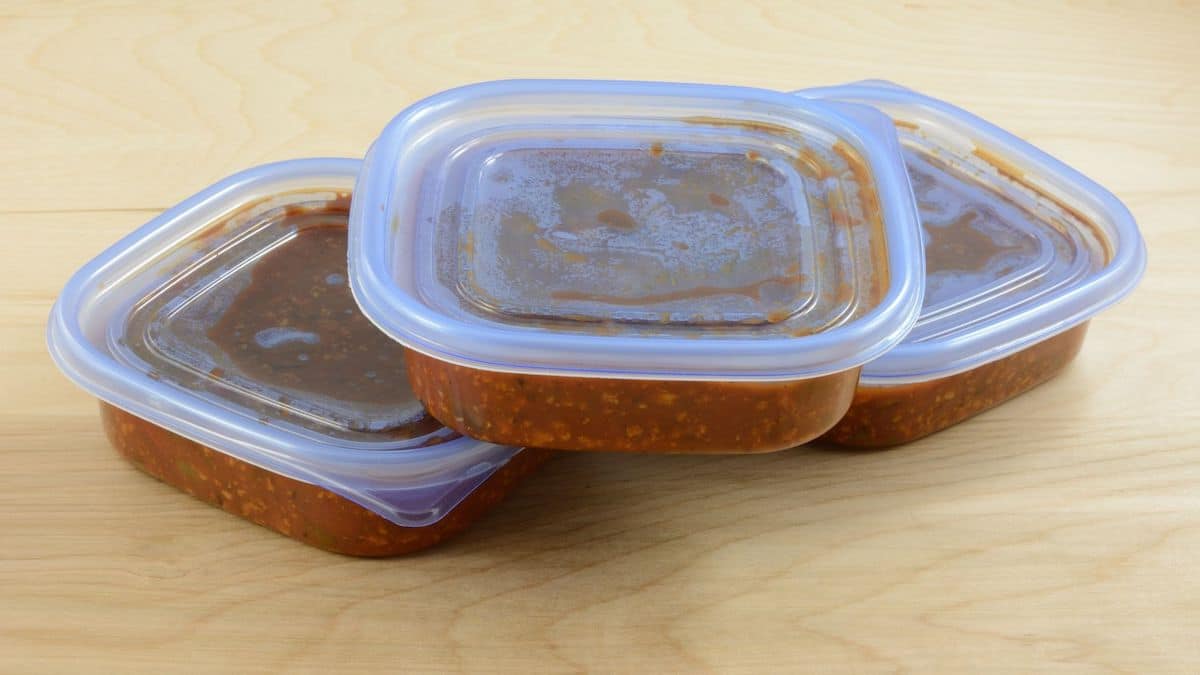
There’s nothing better than a homemade spaghetti sauce that you have lovingly prepared for your family, in which you know all the ingredients and have peace of mind that there are no nasties like additives or preservatives. Therefore, being able to safely and conveniently freeze the spaghetti sauce is a great time-saving strategy.
Here’s a thing though, only tomato-based spaghetti sauces freeze successfully, which if we are honest, are the majority of spaghetti sauces.
Cream-based spaghetti sauces don’t freeze well, but they will be fine in the fridge for a day or two. If the spaghetti sauce does require a little cream, it could be added once you are re-heating the sauce.
When freezing your homemade spaghetti sauce, the simpler the recipe, the tastier the outcome. Great news for us busy parents! Certain vegetables, like celery, can change their consistency when thawed, and some herbs such as parsley basil, cilantro, tarragon, and basil can lose their flavor and aroma after they have been thawed.
However, there’s no rule stopping you from adding a sprinkling of dried herbs (or fresh ones) once the sauce is being reheated. Alternatively, you could just add a bit of sugar or honey to balance out any acidity.
Shredded carrot works very well in a homemade spaghetti sauce recipe as carrots freeze well. It’s also a great way of getting those essential vitamins and minerals into our kids’ diets, often without them even knowing it! Freezing homemade spaghetti sauce not only saves time but it also helps you reduce your waste.
How many times have we prepared or used too much spaghetti sauce and then just chucked it away? I have done it countless times.
Also, the financial benefits of using every scrap of food we purchase, especially over the course of a year and with a growing family, are huge and not to be sniffed at – save that for the yummy spaghetti sauce!
Can You Freeze Store-Bought Spaghetti Sauce?
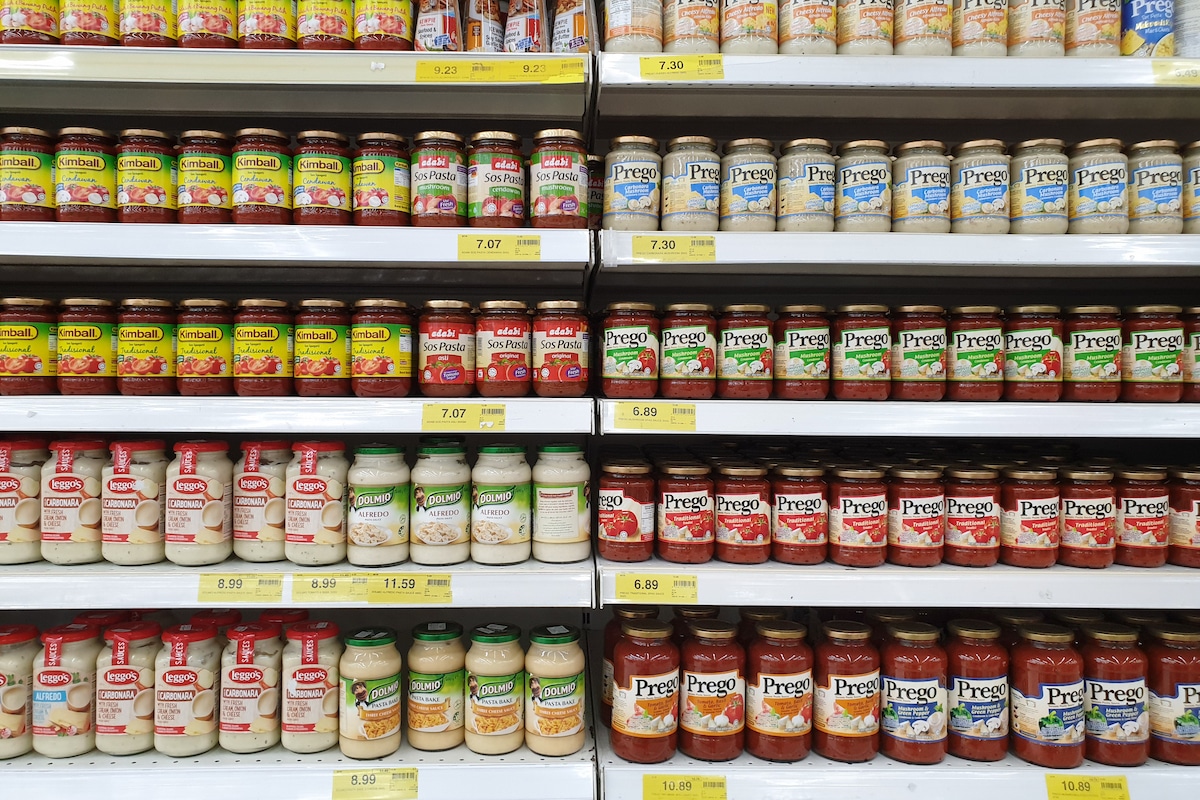
Ok, we don’t all have the luxury of time to make our own homemade spaghetti sauce, or we may not have the ability – we are, at least, honest! So, can we freeze store-bought spaghetti sauce? Yes, we can. Phew! I hear you gasp.
The store-bought spaghetti sauces often come in large glass jars, but more often than not; we don’t always need to use the whole jar, so what do we do with the left-overs? Leave it in the fridge for a week until it gets a fuzz inside? Of course not, we can freeze it.
We just need to be mindful of freezing the store-bought spaghetti sauce in its original container, if it is a glass jar. More on this later in the best containers to freeze spaghetti sauce section.
Saving time, food, and ultimately, saving money, are all the benefits of freezing store-bought spaghetti sauce.The kids will be happy as they get to know the flavor of their favorite store-bought spaghetti sauce and you will be happy as there will be no waste, either on their plates or at the bottom of the glass jar (or whatever container is used).
Furthermore, you will have saved money as you won’t need to rush to the grocery store to buy more spaghetti sauce or more embarrassingly, ask a neighbor if you can borrow some!Whether the store-bought spaghetti sauce is simple and plain or full of vegetables and spice, freezing it is no problem.
The sauce has already been preserved so all you need to do is transfer it into a freezer-safe container, then into the freezer it goes. The sauce can be stored for up to 3 months. The only caveat to freezing store-bought spaghetti sauces is freezing certain cheese-based sauces.
Like with homemade spaghetti sauces that are cheese-based or creamy, dairy products tend to split when frozen and can end up grainy and unpleasant on the palate. Any left-over cheese-based spaghetti sauces will have to be refrigerated and used within the next couple of days.
Can You Freeze Store-Bought Spaghetti Sauce With Meat?
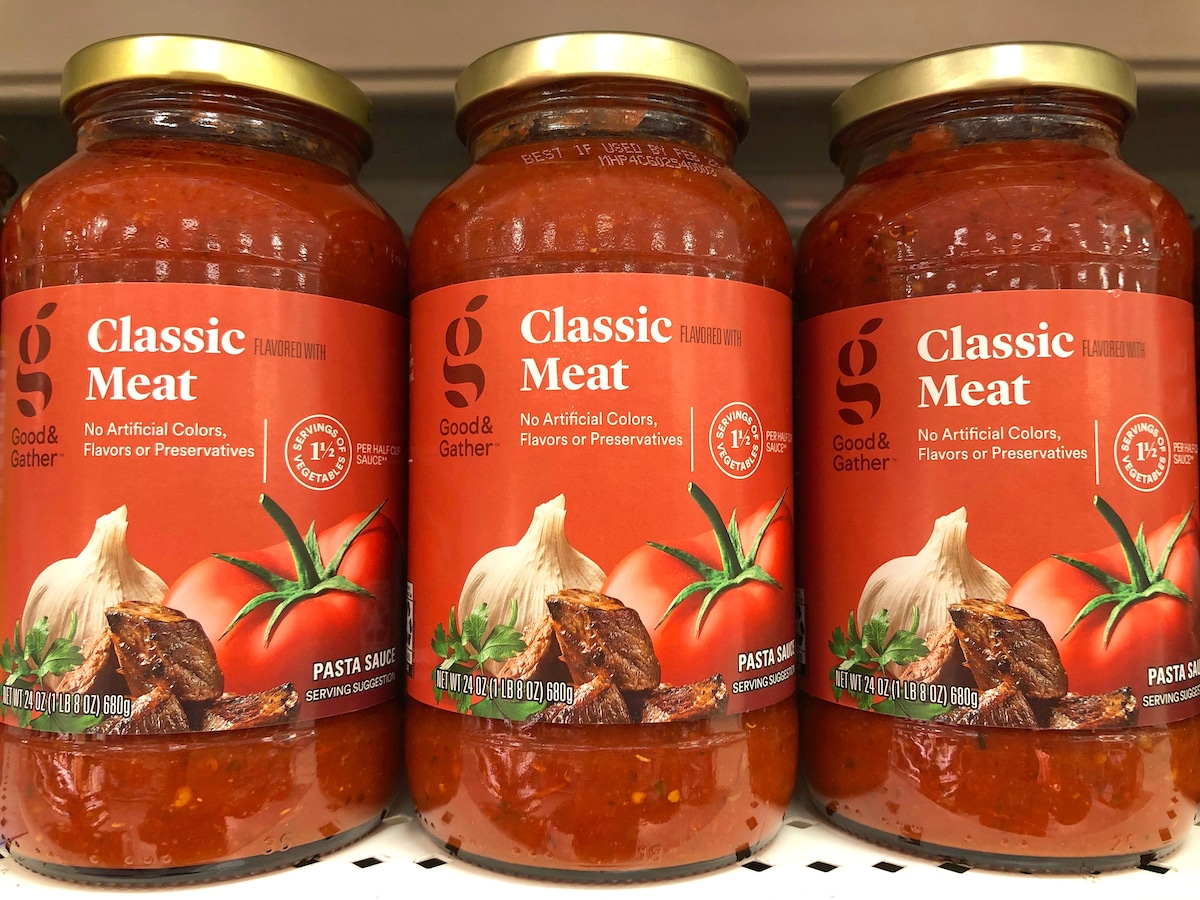
Can you freeze store-bought spaghetti sauce with meat? Yes, absolutely!Be it beef, lamb, or turkey-based spaghetti sauce, it can be frozen.
Whether the meat is sliced, diced, minced, shaped, or even rolled into meatballs, the sauce can be frozen and thawed when needed.
Just avoid freezing any cream-based sauces with meat as the dairy ingredients can split and this won’t go down well with the family.
A meat-based (bolognese) sauce can be frozen for up to 3 months (longer in a deep freezer), and the freezing element won’t impair the flavor, texture, or taste. All you need to do is then simply add pasta to the reheated sauce, such as angel hair pasta or spaghetti. Store-bought spaghetti sauces with meat are a popular choice as they are protein-packed, filling, and generally good value for money.
WARNING: Read the labels carefully as some store-bought spaghetti sauces are ‘meat-flavored’ which doesn’t necessarily mean they contain meat. It is more likely they have chemicals added to them to give the sauce a meat flavor.
Being able to freeze a store-bought spaghetti sauce with meat successfully and thaw at a later stage, is not only convenient in terms of saving time (no last minute dash to the grocery store), but also avoids you wasting the bolognese sauce that you may not have used all up the first time round.
How Long Can You Freeze Spaghetti Sauce?
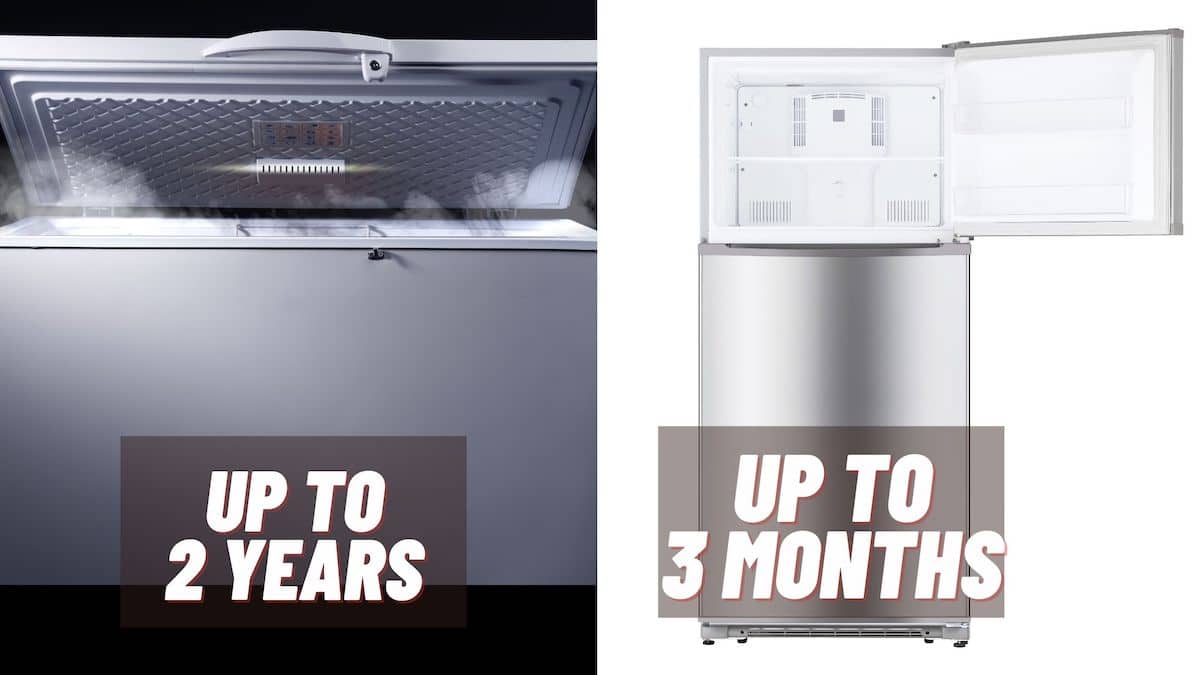
As a general rule of thumb, you can freeze spaghetti sauce (with or without meat) for about three months. Beyond that length of time, freezer burn can set in. This won’t be harmful to you and your family’s health, but it can make the sauce less flavorful and we certainly don’t want to put our kids off their spaghetti sauce.
If you have a deep freezer (this is where food is frozen to the same -18℃ as a regular fridge freezer, but quickly, in about an hour as opposed to 24 hours), the spaghetti sauce can be frozen for a longer period of time, up to 2 years! The flavor and texture of the spaghetti sauce are preserved from the day it is made so no one would notice, not even the picky eaters!
The length of time you can freeze your spaghetti sauce, whether in a conventional fridge freezer or a deep freezer, is also dependent on the way (see the section below) in which the sauce is frozen (see the section below).
It is a good idea to label your sauce with the date it is frozen so you can keep track of how long each sauce will last. It is also a good idea to label it as a spaghetti sauce or a spaghetti sauce with meat, so you know exactly what it is, as when frozen, the sauce can be difficult to decipher. This is exacerbated with a longer time frame too. A permanent pen is useful for the labeling of the frozen sauce.
Best Containers To Freeze Spaghetti Sauce?

So, you have your spaghetti sauce and are now almost ready to put it into a container for freezing. Don’t forget that If you’re freezing your own homemade spaghetti sauce, it is important that you let the sauce cool down first. Don’t leave the sauce out for too long though (no more than 2 hours) as bacteria can start to bread (source: United States Department of Agriculture)
Here are three of the best containers for freezing spaghetti sauce:
Glass Jars
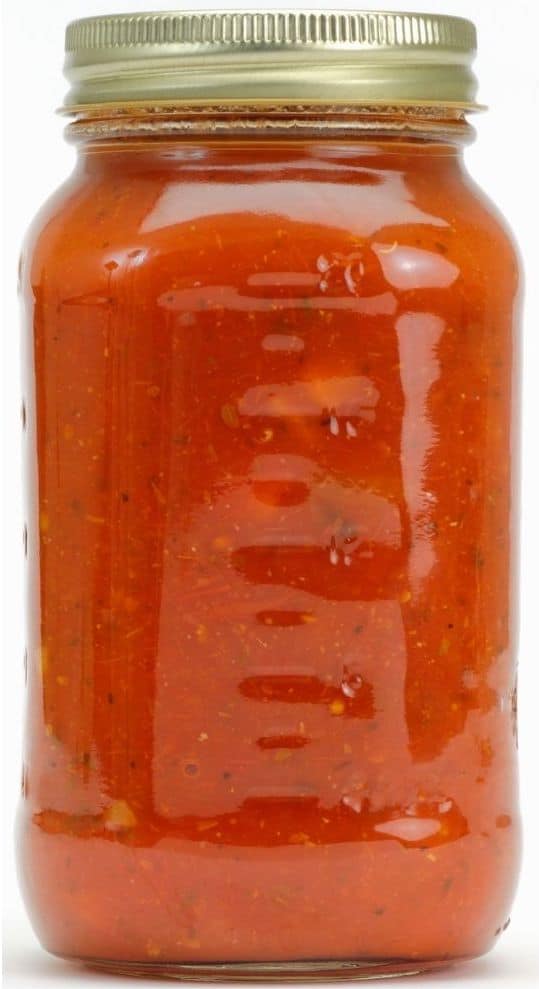
| Advantages | Disadvantages |
|---|---|
| No plastic waste | Takes up more room in a freezer |
| Good way of reusing glass jars | Glass has potential to break in the changes of temperature |
| Easy to clean | Have to store jars upright |
| No harmful chemicals leaking into the food | Potential freezer burn if not sealed |
| It is non-porous so doesn’t absorb smells or discolor |
You can freeze your homemade spaghetti sauce in glass jars but you need to make sure there is headspace (empty space) above the sauce, as the sauce expands as it freezes.
Most twist-off lid jars used for foods like jam, honey, and fruit can be used. I find the glass jars with straight sides and a wide opening are the most convenient for storing in the freezer.
You can get special freezer-glass jars that have necks that get wider at the top rather than becoming narrow.
If you’re freezing a lot of spaghetti sauce, this may be a good route to take as these types of jars are resistant to temperature changes and less likely to break. You can also get them in different sizes so creating perfect family portions of spaghetti bolognese becomes a breeze.
Finally, if you want to freeze your store bought spaghetti sauce in the jar you bought it in, be careful, as some of these glass jars are thinner and so may carry a risk of breaking while freezing or when it comes to thawing.
Ziploc Bags
| Advantages | Disadvantages |
|---|---|
| Easy to stack | Plastic waste |
| Cheap to purchase | Plastic can discolour and absorb smells so may not be reusable |
| Unlikely to cause freezer burn to your spaghetti sauce | Production of plastic harmful to the environment |
| Easy to organise into different portion sizes |
You can easily freeze your spaghetti bolognese sauce in Ziploc bags. They are cheap, versatile and you wont need to worry about freezer burn or oxidation affecting the taste and quality of your sauce.
I find leaving half an inch or an inch of space at the top of the Ziploc bag (to allow space for the sauce to expand as it freezes) is usually sufficient, depending on the total volume of spaghetti sauce you’re freezing.
Just make sure the Ziploc bags are sealed tightly at the top as you don’t want any waste or spillages. It’s also a good idea to label the bags with a Sharpie so you remember what is inside.
A top tip given to me by a freezer-fanatic friend is to lay the Ziploc bags flat on a cookie sheet carefully spreading out the sauce with your hands. This way you save space in your freezer, as once frozen and the cookie sheet removed, you can stack the Ziploc bags or line them up like books on a shelf. The flat shape allows the sauce to freeze and thaw quicker, helping to keep the quality of the sauce intact
FoodSaver
| Advantage | Disadvantage |
|---|---|
| Easy to store in the freezer | Plastic waste |
| Sealed unit so no chance of freezer burn or oxidation | Production of plastic harmful to the environment |
| Variety of bag sizes can be created | Requirement to purchase vacuum sealer |
| Meat and vegetables last longer | Bags can be expensive |
If you want to freeze your meatball spaghetti sauce with a guarantee that in a few weeks’ time, when you come to thaw it, it won’t have suffered freezer burn or oxidation, then FoodSaver bags are your best option.
FoodSaver is a home vacuum sealer that you can use to quickly remove the air from your bag of spaghetti sauce. This will ensure the contents are preserved and ready to enjoy once thawed.
Another benefit of FoodSaver bags is their versatility in terms of bag size. Using a roll enables you to cut the bags into different sizes which can be handy if you want a smaller spaghetti sauce portion size for your kids and a larger portion size for your grown-ups.
One of the main benefits of the FoodSaver system is the length of time it will preserve your spaghetti sauce, especially when accompanied with meat.
Meats used with spaghetti sauce, like beef and poultry, generally only stay fresh for about six months when stored in the freezer using conventional methods. However, with the FoodSaver System, the meatball spaghetti sauce will last for up to 2-3 years. You can also extend the life of the vegetables within the spaghetti sauce from eight months in a standard freezer bag to about two to three years using the FoodSaver System.
Personally, I think the FoodSaver System is the best container to freeze my meatball spaghetti sauce. Having tried all of the above containers, the Foodsaver System preserves the sauce to the same taste standard created on the day the sauce was made. However, I am freezing on a regular basis in large batches with access to a deep freezer. If I were operating on a smaller scale, I may not be so reliant on the FoodSaver System.
My favorite vacuum sealer is the FoodSaver V4840 2-in-1 Vacuum Sealer Machine. It works great, it is easy to use and the best feature; it also seals bottles of wine. Perfect for those nights when you only fancy a little cheeky glass. No need to waste the rest!
Although this vacuum sealer is not the cheapest, it is one that will last you forever. I used to own a cheaper one but found that they lost suction within a few uses. By the time you replace your food saver twice, might as well have bought this one. If you don’t believe me check out the reviews on Amazon, of 2,577 reviews 80% is in the 5 stars rating, and 10% on the 4-star rating. Cannot get better than that!
How to Defrost Spaghetti Sauce
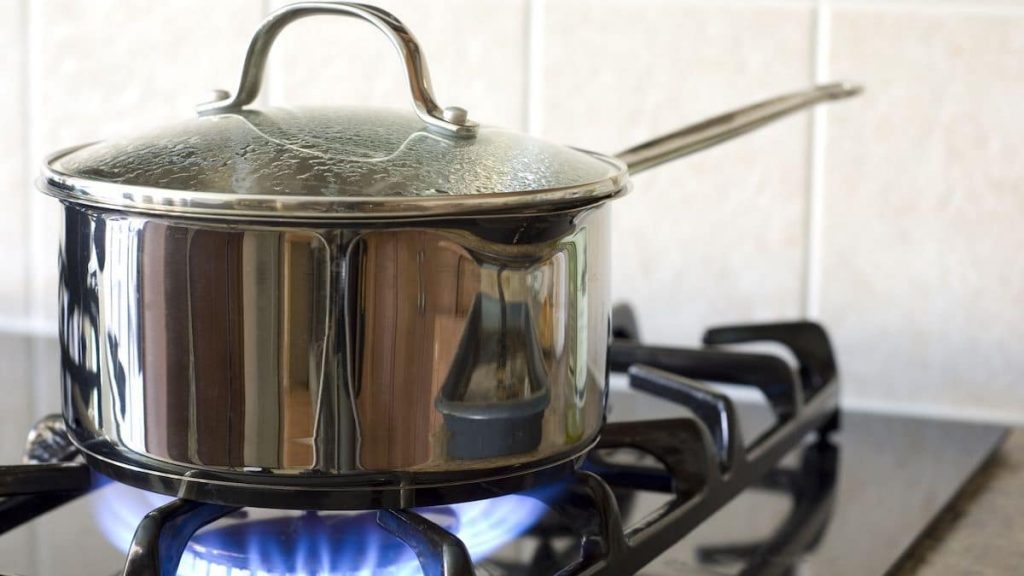
The best and safest way to thaw your frozen spaghetti sauce is to leave it in your fridge overnight.Obviously, being in a cold temperature is going to mean it will take longer to thaw but it will reduce the chance of bacteria breeding and/or the sauce separating.
TIP: Always put a plate under the frozen spaghetti sauce as it will leak a lot of water and you don’t want lots of cleaning work to do.
Once thawed, you just need to reheat it on the stovetop over low heat, gradually building up to medium heat, for about 15 minutes, stirring occasionally. The amount of time to reheat the spaghetti sauce will depend on the portion size and the amount of heat applied.
If you’re short on time or you have forgotten to put the spaghetti sauce in the fridge the day before you need it, put the container of spaghetti sauce into a bowl of cold water. If you’re really in a rush, pop it into the microwave. Although, I don’t recommend this method of defrosting your spaghetti sauce as it won’t resemble the sauce you prepared, it is an emergency method which will take less than 10 minutes.
Do not defrost your spaghetti sauce at room temperature. This is particularly important for spaghetti sauces that consist of meat.
Tomato-based spaghetti sauces should be ok but I don’t recommend it as it could lead to a substandard sauce. The first reason is that the difference in temperatures between the freezer and the room does not help the spaghetti sauce. More importantly, spaghetti sauces left at room temperature are at risk of bacterial contamination (source: Food Standards Agency).
Conclusion
You absolutely can freeze homemade and store-bought spaghetti sauce.I do it regularly and am very happy with the results. It saves time, money, and energy.On a Friday night, after a busy week, there is nothing more satisfying than reheating my meatball spaghetti sauce while cooking some angel hair pasta, all in less than 12 minutes. Full tummies and full smiles all round.
